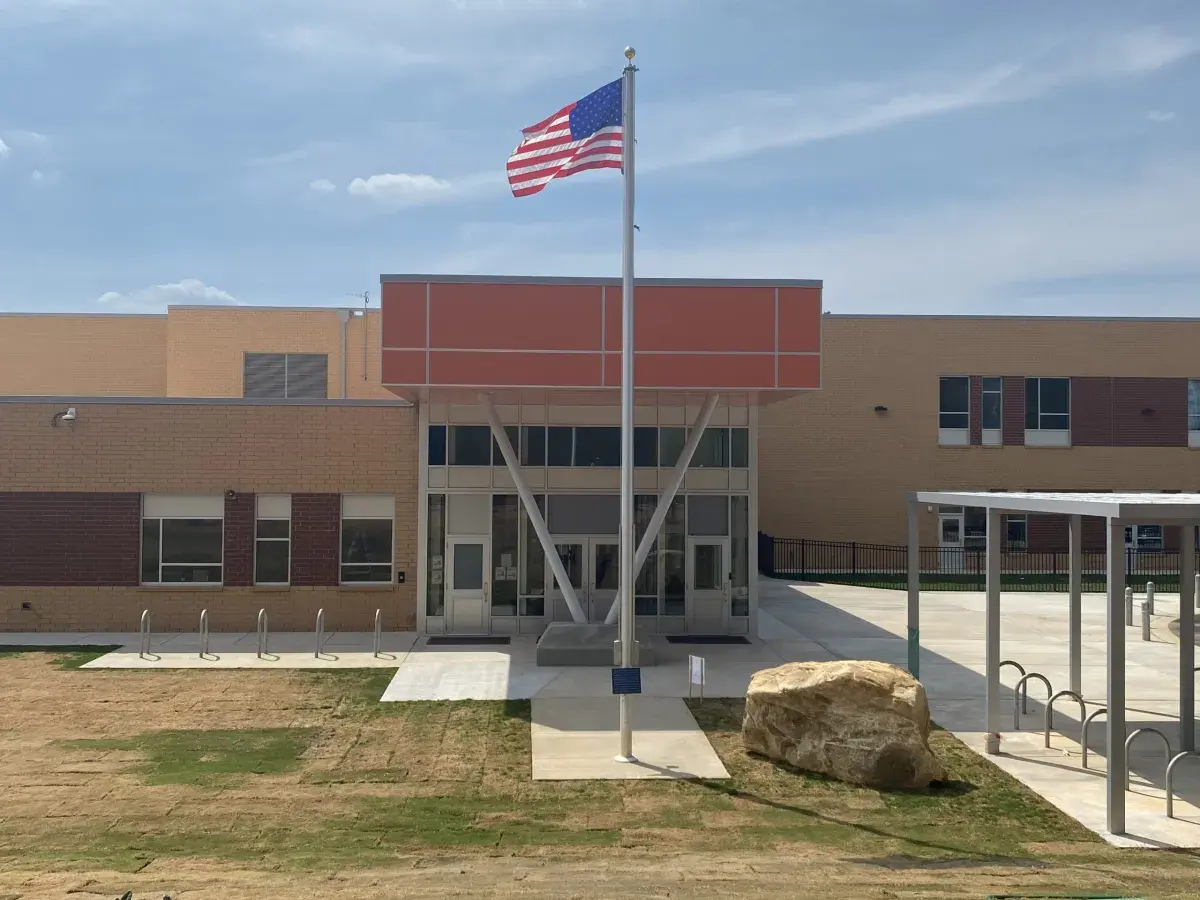The past 12 months saw the arrival of anti-establishment candidates in Argentina, Ecuador, and Guatemala, the rise of tensions between Venezuela and Guyana, and the Panama Canal drought that threatens to affect world trade.
BOGOTA, Colombia
Outsiders coming into power, unrest, violence, and climate change were at the forefront in Latin America in 2023.
Argentina elected a right-wing libertarian as president, which has catapulted its economy into an unpredictable future. Ecuador is suffering from the worst insecurity crisis in decades, which led the country to hold the most violent elections in history.
Meanwhile, tensions between Venezuela and Guyana continue to grow, the UN Security Council approved sending foreign forces to Haiti to solve gang violence, and Chileans voted not to replace the Pinochet-era constitution for the second time.
Here are the stories that defined the last twelve months in Latin America:
Libertarian outsider wins Argentina’s presidential election
Javier Milei, a libertarian economist who has drawn parallels to former US President Donald Trump and Brazil’s Jair Bolsonaro, was elected president of Argentina, catapulting the country’s economy into an unpredictable future.
In Argentina, where inflation has soared to 140% and the peso has depreciated 90% in four years, Milei has pledged drastic measures. His proposed initiatives include abolishing the central bank, cutting public spending, streamlining ministries and adopting the US dollar as the national currency.
Since coming into power on Dec. 10, Milei has released an 86-page decree that contains 366 articles declaring a financial, fiscal, and administrative “emergency” in Argentina, while repealing hundreds of laws protecting workers and consumers. The decree scraps many economic regulations in a country accustomed to heavy government intervention in the market. The president sent a package of bills to parliament to give effect to his decree.
Although Milei became president with a record vote of 56% of Argentines and used that support to ask lawmakers to approve his reforms, he is called to govern in a polarized country with powerful organizations that are determined to prevent cuts in labor rights. More than 10,000 people took to the streets of Buenos Aires last week to protest the proposed amendments. Although many experts agree that some of these reforms are necessary, they have been called anti-democratic because there has not been a debate around them.
Ecuador’s election overshadowed by violent crime
Ecuadoreans elected a center-right presidential candidate coming from one of the country’s wealthiest families in an election overshadowed by violent crime and the assassination of Fernando Villavicencio, an optional candidate.
Banana industry heir Daniel Noboa surprisingly won over leftist Luisa Gonzalez, who had promised increased worker protections. The youngest president in the country’s history, who took office in December, will only govern for 16 months, the remainder of Guillermo Lasso’s presidential term, who dissolved the Assembly in May and called elections to avoid a political trial for corruption.
Noboa received a country that is economically stagnant and has been stained by surging violence. In September, 3,600 homicides had been committed in the country, double that of last year. Organized crime has infiltrated the nation that until a few years ago did not have drug trafficking problems that plagued other Latin American countries.
The odyssey of being able to govern in Guatemala
Guatemala saw progressive congressman Bernardo Arevalo unexpectedly come to power to win in his country’s presidential elections, defeating former First Lady Sandra Torres.
However, since his strong showing in the first round, prosecutors and rival politicians who have governed the most populous Central American country for years have tried to question the legitimacy of his victory and prevent him from taking office on January 14.
The moves have been seen as politically motivated attempts to exclude Arevalo from the presidential race, which have prompted an outpouring of support from thousands of Guatemalans.
Venezuela-Guyana border tension rises over Essequibo
Tensions rose in a territorial dispute between Venezuela and Guyana, with Caracas deploying troops near the contested oil-rich Essequibo region.
Guyana and Venezuela have been engaged in a years-long dispute over their borders intensified after ExxonMobil’s first oil discovery in the territory eight years ago.
While Guyana says its border with Venezuela was fixed by an arbitration tribunal in 1899, Venezuela says the Essequibo River forms a natural frontier recognized at the time of independence from Spain.
In the latest events, Venezuela has accused the UK of provocation after London sent a warship off the coast of Guyana. President Nicolas Maduro ordered 5,600 troops to take part in a “defensive” military exercise following the arrival of the British warship.
Darien Jungle: an increasing, ongoing migration problem
Migration issues have become a humanitarian crisis in Latin America, which has seen a surge in the number of people daring to cross the treacherous Darien jungle connecting Central and South America.
Over half a million people migrated north across the Darien Gap this year, — more than double the number last year — according to the United Nations. Nearly one in four people who made the journey in 2023 were children.
The 575,000-hectare wall of vegetation has become a corridor for migrants from South America trying to reach the United States through Central America and Mexico. Migrants are willing to risk their lives on this dangerous journey after having gone through situations of vulnerability in their countries such as hunger, poverty, inequality, forced displacement, climate change, violence, and xenophobia.
Panama Canal faces unprecedented drought
A severe drought has caused one of the world’s main maritime trade routes to reduce ship crossings this year. Shipping via the Panama Canal has dropped by over 50% due to drought conditions at the 51-mile stretch.
The canal’s drought was worsened by the El Nino weather phenomenon which warms the Pacific Ocean, which has pushed up fees and traffic at the canal, forcing fuel tankers and grain shippers to take longer routes.
Fewer ships passing through the canal means the Panamanian government loses tens of millions of dollars in annual revenue, the cost of shipping rises, and greenhouse gas emissions increase as ships opt for longer routes.
Chile rejects new constitution a second time
Chileans rejected a new constitution proposed by a conservative-dominated body that would have changed laws regulating abortion access, curbed the ability to strike, and limited rights for indigenous people. The new draft was rejected by 56 percent of voters.
Back in 2020, 78 percent of Chileans voted in favor of replacing the country’s current constitution which was written during the dictatorship of Augusto Pinochet in 1980. But then, in 2022, 62% ¿of voters rejected the first attempt at that document, which would have been one of the most progressive constitutions.
The process to rewrite the constitution began after mass protests that broke out in 2019 against social inequality. Leftist Chilean President Gabriel Boric said that it would be the last attempt at constitutional reform.
UN approves international force to aid Haiti amid surging gang violence
The United Nations Security Council approved the deployment of an armed multinational force to Haiti, as the nation deals with widespread gang violence and political crisis.
The mission is expected to be led by Kenya, which has pledged 1,000 police to spearhead the mission. Other countries including Antigua, Barbuda, the Bahamas, and Jamaica have also offered support to the mission. (https://www.aa.com.tr/en/americas/stories-that-marked-latin-america-in-2023/3097020)



































